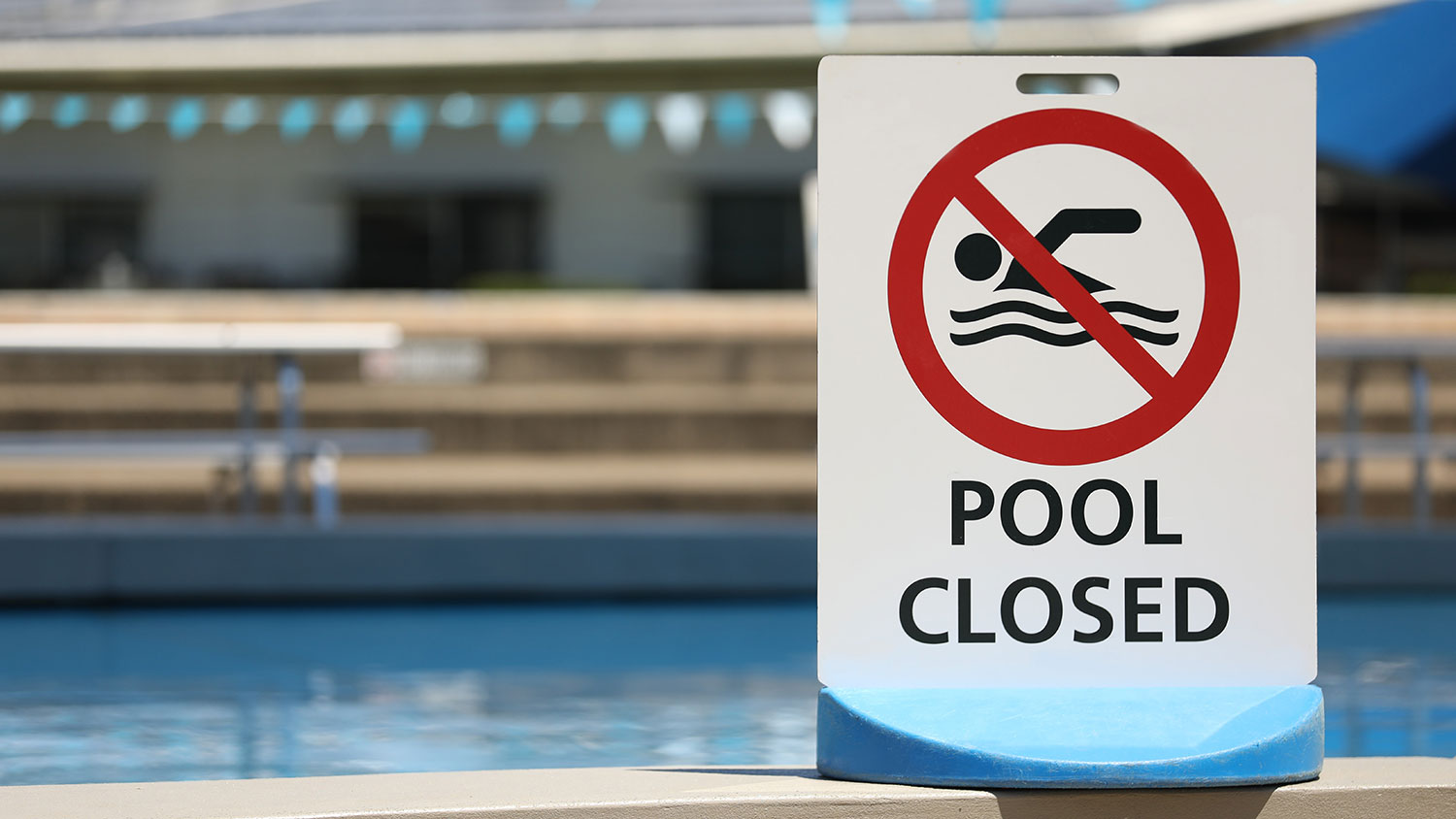With Houston’s temperate climate, almost any time is pool time. Pools are synonymous with fun for kidsand grownups alike; pools offer a place to cool off, socialize, and host gatherings. However, for Homeowner Associations (HOAs) and condo boards with pools on the property, the responsibility goes beyond just ensuring a good time. There are mandatory Fair Housing Act (FHA) and Americans with Disabilities Act (ADA) rules governing community use pools.
RISE Association Management Group consults with clients regularly on FHA, ADA, and HOA swimming pool rules that prioritize safety and enjoyment while adhering to federal, state, and local anti-discrimination laws. With temperatures starting to drop, many communities opt to close their pool for the season. Pool closure includes additional requirements HOA must heed.
Basic HOA and Condo Swimming Pool Rules
Swimming pools are a top amenity to draw new residents. Of course, there are many safety considerations that come with pools, making the need for strict pool rules a necessity. The top risks HOAs and condo boards must consider include drowning, slips/falls, diving accidents, pool chemical exposure, and liability. In response, common HOA swimming pool rules include:
- No diving: post signage clearly stating diving is not allowed.
- No running/horseplay: this can be tough to enforce, but posted signage can help reduce running around pools. Encourage residents to walk when poolside and instruct their kids to do likewise.
- No glass in the pool area: broken glass is a major safety hazard around and in the pool, making this a reasonable request for pool users.
- No outside access: HOA and condo pools are the property of the community members, meaning it is acceptable to prohibit pool use from non-residents (with the exception of resident guests.)
Understanding FHA, ADA, and HOA Swimming Pool Rules
The Fair Housing Act (FHA) is a cornerstone in ensuring fair and equal treatment for all. It shields individuals from housing discrimination based on various factors, including race, color, religion, gender, national origin, familial status, and disability. Similarly, the Americans with Disabilities Act (ADA) requiresaccessibility for individuals with disabilities. The FHA and ADA both have specific requirements for community-use pools. Here’s what HOA managers need to know about the FHA and ADA:
FHA Familial Discrimination: A Potential Pitfall
When it comes to pool rules, it’s critical to understand the FHA’s stance on familial discrimination. Under the FHA, rules that treat families with children differently than those without may be viewed as discriminatory. This extends to pool regulations. To avoid potential issues, it’s wise to craft pool rules that do not single out children or minors.
Instead of creating age-specific rules that target children, consider crafting regulations that apply to all pool users. For example, a rule prohibiting “balls, inflatable items, or water guns” in the pool area is more inclusive than one singling out children. The focus should be on the behavior and use of the pool rather than the age of the users.
Reasonable Accommodations for Disabilities: HOA and ADA Compliance
The FHA also mandates that housing providers make reasonable accommodations for individualswith disabilities. This could include allowing assistance animals in the pool area, ensuring that individuals with disabilities can enjoy the pool premises as others do.
If your pool is considered a public space, it must adhere to the Americans with Disabilities Act (ADA). This means providing accessibility for individuals with disabilities. Specific entry requirements are determined by the size of the pool.
The ADA offers design compliance guidelines not only for pools but also for spas and wading pools. These guidelines are essential when installing new pool facilities. However, they can also apply when making modifications to existing pools. The U.S. Department of Justice Civil Rights Division has ADA guidance and resource materials available online here
HOA Swimming Pool Guidelines for End of Season
Accidents and injuries can still occur when pools and spas are not actively in use. HOAs must keep in mind several simple safety considerations to prevent incidents during the pool off-season.
General safety considerations:
- Drain the pool completely. This will help to prevent drowning accidents and the spread of germs.
- Clean and disinfect the pool and all pool equipment. This includes the pool deck, filters, pumps, and heaters.
- Remove all pool furniture and toys. This will help to prevent tripping and falling accidents.
- Secure all pool gates and doors. This will help to prevent unauthorized access to the pool area.
- Cover the pool with a heavy-duty tarp. This will help to keep the pool clean and prevent debris from accumulating.
- Winterize the pool plumbing. See details below.
Additional safety considerations:
- Post a closure sign at the entrance to the pool area. This will help to deter people from using the pool.
- Notify the local health department about the pool closure. This is required by law in some areas.
- Inspect the pool area regularly during the winter months. This will help to ensure that the pool cover is intact and that there are no safety hazards.
Specific safety considerations for Houston:
- Be aware of the possibility of flooding.
- Be aware of the possibility of freezing temperatures.
How to Winterize Pool Plumbing and Equipment
- Turn off the pool pump and filter.
- Open all faucet spigots and drain valves.
- Remove the drain plugs from the pump, filter, heater, and other equipment.
- Blow out the plumbing lines with a shop vacuum or leaf blower. Be sure to blow out all of the lines, including the skimmer lines, return lines, and main drain line.
- Close all of the faucet spigots and drain valves.
- Replace the drain plugs in the pump, filter, heater, and other equipment.
- Add antifreeze to the plumbing lines. Be sure to use a propylene glycol-based antifreeze, as ethylene glycol-based antifreeze is toxic to humans and animals.
- Run the pump for a few minutes to circulate the antifreeze through the plumbing lines.
- Turn off the pump and disconnect it from the power source.
- Cover the pool with a heavy-duty tarp.
Seeking Legal Expertise on ADA and HOA Swimming Pool Rules
Creating pool rules that align with FHA and ADA anti-discrimination laws can be intricate. To ensure compliance and avoid potential legal issues down the line, consulting with legal professionals is highly recommended. Community management professionals can provide valuable guidance in crafting rules that strike the right balance between safety, enjoyment, and inclusivity. HOA and condo board membersmust also be mindful of their risk exposure and potential liability that comes with having a community use pool.
Pool season is a time for relaxation and fun, but it’s also a time for HOAs and condo boards to ensure that their pool rules are inclusive and legally sound. By understanding the FHA, considering non-age-specific rules, providing reasonable accommodations, and adhering to ADA guidelines, associations can create an inviting and safe pool environment for all. Seeking legal counsel may be the key to ensuring that the rules are compliant and that everyone can enjoy the pool this summer without discrimination concerns. RISE works with many of the top Houston HOA attorneys and will be glad to provide recommendations. Read more about a few of the top firms here, in an HOA Attorney review we recently published.
If you have questions about ADA and HOA swimming pool rules or community management services, send us a message or call 713-936-9200.





